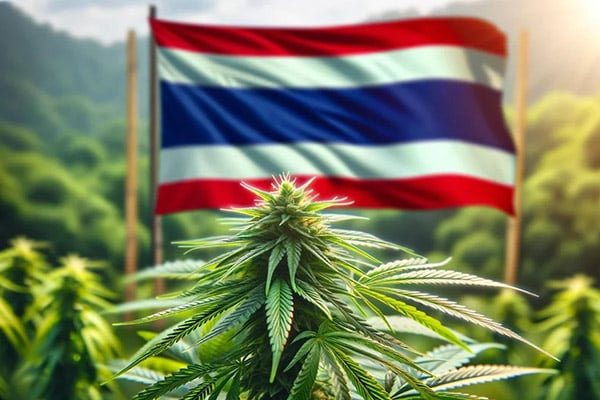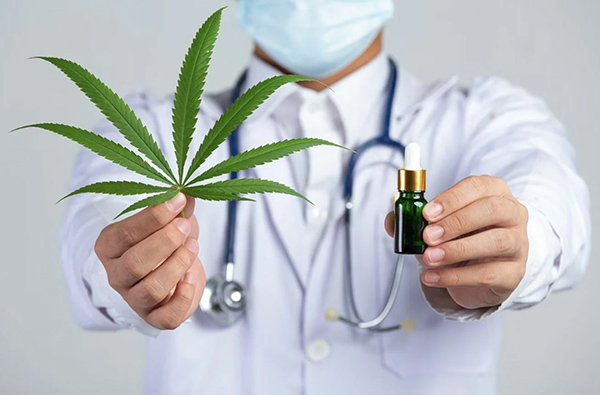From Boom to Uncertainty: The Evolving Cannabis Landscape in Thailand

From Boom to Uncertainty: The Evolving Cannabis Landscape in Thailand

In recent years, Thailand’s cannabis business has had a spectacular ups and downs. The nation decriminalized cannabis in 2022, which led to a spike in recreational use and the growth of the cannabis business. But along with this fast transformation came a lack of rules, which raised questions and suggested a move towards a medicinal-only paradigm.
A Shift from Harsh Prohibition to Decriminalization
There is detailed information about use of cannabis in medical and spiritual practice in Thailand.
But in the 1930s, the country imposed a strong prohibitionist policy in response to pressure from overseas. For decades, this law—which imposed severe penalties for both possessing and cultivating cannabis—was in force. That is, until the early 2000s, when the policy changed.
Research on medical marijuana grew in popularity, and attitudes towards cannabis in general began to change. Thailand was the first country in Southeast Asia to legalize medicinal marijuana in 2018, opening the door for the development and manufacture of cannabis-based medications. This action made it possible for cannabis to be completely decriminalized in 2022. But the absence of regulation resulted from the parliament’s inability to approve a bill that would have imposed limitations on its usage. Cannabis was decriminalized without the required legislative framework due to a disagreement in the House.
But there were few regulations following decriminalization, leading to a thriving but largely be unregulated industry with thousands of cannabis products sold in about 6,000 outlets. Concerns about this situation pushed the newly constituted government to reevaluate the policy following the August elections. Seetha Taliesin, the prime minister of an 11-party coalition government, declared her intention to reverse the 2022 cannabis laws, concentrating solely on medical applications and tackling the pervasive drug issues.
The suggested modifications include restricting cannabis and related products to medical and health uses only, outlawing recreational use, and punishing offenders with steep fines or jail terms. The government has stated that it will revise the Act within six months of taking office, and this shift is consistent with its opposition to the use of cannabis for recreational purposes. The draft measure is presently being reviewed by the cabinet and needs to be approved by parliament in order to become law.
*The decision to decriminalize was motivated by a few objectives:
Boost the Economy: The government envisioned a robust cannabis business that would create new employment and generate tax revenue.
Medical Use: Patients with chronic illnesses may live longer with easier access to medical marijuana.
Reduce Incarcerations: The goal of decriminalization was to decrease the load on the legal system and the number of individuals incarcerated for marijuana-related offenses.
Due to the decriminalization, there is now a de facto legal cannabis market, with dispensaries opening up all throughout the nation, especially in popular tourist destinations. Businesses recognized a chance, and infused food items, spas, and cannabis cafes emerged.
The Wild West of Weed: A Market Without Regulations
The absence of regulations following decriminalization presented a number of challenges. Here's a closer look at some of the main issues:
Uncontrolled Quality and Potency:
The THC concentration and general quality of cannabis products were not well known to consumers. Due to the possibility of impurities or surprisingly high THC levels in some products, there were health risks.
Public Consumption Concerns:
Thai culture is traditionally conservative, thus the growing visibility of cannabis usage in public was unsettling. It’s possible that tourists unintentionally broke the rule since they weren’t aware of its bounds. The possible effects on tourism as well as public decorum were brought up.
Black Market Persistence:
Due to the uncontrolled cannabis market, unlicensed enterprises were able to flourish and provide cannabis at a lower cost, which impeded the expansion of the legal cannabis industry. Furthermore, organized crime could take advantage of the lax regulations. The Highs and Lows: The Impact of Decriminalization on Thailand*** The decriminalization of cannabis had both positive and negative consequences for Thailand. Here's a breakdown of the impact:
**Positive Impacts:**
Economic Boom: The cannabis business grew quickly, generating new jobs in the processing, retail, tourism, and cultivation sectors. This economic boom was especially noticeable in rural areas where farmers could be able to earn additional revenue from cannabis growing.
Medical Benefits: Medical marijuana became more widely available to patients with epilepsy, chronic pain, and other ailments, potentially enhancing their quality of life. There has also been a notable increase in the study of cannabis’s medicinal uses.
Social Change: In Thailand, decriminalization spurred discussion about changing drug laws. It disproved conventional wisdom regarding cannabis and paved the way for a more sophisticated strategy of drug policy.
**Negative Impacts:**
Public Concerns: The uncontrolled public use of cannabis led to conflict with traditional social standards in Thailand. There were worries about the normalizing of drug use and possible harm to children.
Tourism Uncertainty: The legality of cannabis use confused visitors, which could have an effect on tourist earnings, which is a vital pillar of the Thai economy.
Health Risks: The danger of ingesting tainted or powerful cannabis products increased due to a lack of quality control, which could have negative health impacts.
**A Course Correction: Thailand's Move Towards Medicinal Cannabis**

Thailand is currently thinking about making a big change to its cannabis laws in response to the issues brought about by unrestricted recreational cannabis use. Late in 2023, the government, led by Prime Minister Srettha Thavisin, put forward legislation proposals with the following goals:
Re-criminalize Recreational Use: The proposed bill would reintroduce the prohibition on cannabis use for recreational purposes. Cannabis possession and use for purposes other than medicinal would result in fines or maybe jail time.
Stricter Regulations: More stringent laws will be imposed by the government on the cultivation, export, and retail of medicinal marijuana. This covers THC content restrictions, license regulations, and quality control procedures.
Focus on Medical Benefits: Now, the focus will be on developing cannabis-based medications for a range of ailments through research and development. Collaboration with pharmaceutical companies and increasing government financing for clinical trials could be part of this.
What Does the Future Hold? The Uncertainties of Thailand's Cannabis Market
The future of Thailand's cannabis market remains uncertain. The proposed shift towards a medicinal model faces opposition from various stakeholders:
Owners of cannabis cafes and dispensaries worry that their operations would be severely harmed by new rules. They contend that a thriving medicinal cannabis industry could coexist with a well-regulated recreational cannabis market.
Advocates for Medical Cannabis: Some supporters of medical marijuana are concerned that patients may find it more difficult to get the cannabis they require for their diseases if there are restrictions on access and THC concentration.
Public Opinion: Regarding the suggested improvements, opinions vary. While some Thais advocate a return to more traditional methods, others are in favor of a controlled recreational market in addition to medical marijuana use.
The ability of the administration to reconcile these conflicting interests and put in place a fair regulatory framework will probably determine the result. Here are a few possible outcomes:
Strict Medicinal Model: The planned legislation is effectively enforced by the government, leading to a strictly regulated medical cannabis market with restricted recreational access.
Hybrid Model: An agreement is made that permits both a thriving medical cannabis industry and a regulated recreational market. To address public concerns and assure responsible use, this would require thorough regulation.
Delayed Implementation: There will be strong opposition to the new law, which could cause delays or changes before it is put into effect.
Conclusion:
The cannabis industry in Thailand has experienced swift transformations and unpredictabilities. Although the initial surge was caused by decriminalization, worries about the absence of restrictions have resulted in a possible move towards a medicinal-only paradigm. The next few months and years will be very important in figuring out how Thailand's cannabis business develops in the long run. Other nations contemplating comparable reforms can learn a lot from Thailand's experience with legalizing cannabis. It is crucial to find a balance between social concerns, public health, and economic opportunities.
Sources
Global Initiative Against Transnational Organized Crime: https://globalinitiative.net/a...
Channel News Asia: https://www.channelnewsasia.co...





